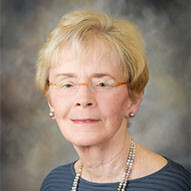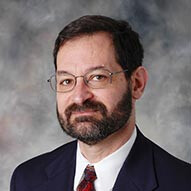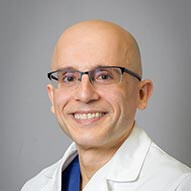Tetralogy of Fallot (TOF)
A child with tetralogy of Fallot (TOF) is born with four different heart defects that affect the flow of blood that carries oxygen from the lungs to the body. Pediatric heart specialists at The Heart Center at Children’s Health℠ perform complex surgical procedures to treat tetralogy of Fallot (te·tral·o·gy - of - Fal·lot) in the smallest patients. We correct all four heart problems to help your child grow to adulthood and enjoy a full life.
What is tetralogy of Fallot?
Tetralogy of Fallot is a type of congenital heart disease that is present at birth. Tetralogy is the medical term for four conditions that occur together.

A baby with tetralogy of Fallot has these four heart conditions:
Pulmonary stenosis - Narrows the pathway that carries blood from the heart to the blood vessels in the lungs.
Ventricular septal defect (VSD) - Causes an opening (hole) between the heart’s lower left and right pumping chambers (ventricles).
Ventricular hypertrophy - Thickens the heart muscle in the lower right ventricle.
Displaced aorta - Causes the aorta (the main blood vessel that carries blood to the body) to arise farther on the heart’s right side than usual.
What are the signs and symptoms of tetralogy of Fallot in infants?
Symptoms of tetralogy of Fallot typically appear within hours or days after birth. During a newborn screening, your child’s health care provider may detect a sound known as a heart murmur or your baby may have low oxygen saturation (oxygen level) in their blood.
If the pulmonary stenosis is severe, your baby’s skin, tongue and fingernails may look blue (cyanosis). Cyanosis occurs because not enough blood is going to the lungs to get oxygen. As a result, the blood that leaves the heart and flows through your child’s body is low in oxygen.
How is tetralogy of Fallot diagnosed in infants?
Doctors at our Fetal Heart Program may diagnose tetralogy of fallot during pregnancy. At Children’s Health, we use the most advanced cardiac imaging to pinpoint the severity of the four heart conditions. This information helps our doctors customize the most effective treatment plan for your child.
Your baby may get one or more of these diagnostic tests:
Echocardiogram - An ultrasound of the heart
Electrocardiogram (EKG) - A test that measures the heart’s electrical activity
Chest X-ray - Images of the heart and chest
What causes tetralogy of Fallot?
Most congenital heart diseases like tetralogy of fallot happen for no known reason. They are not the result of something a woman does or doesn’t do during pregnancy.
Some children with tetralogy of fallot may also have Down syndrome or DiGeorge syndrome. These conditions are the result of a change in a child’s genetic makeup (chromosomes). Our heart specialists partner with Down or DiGeorge syndrome specialists at Children’s Health to provide comprehensive care for your child.
Risk factors
Viral illness such as rubella during pregnancy
Maternal alcoholism
Family history of the condition
How is tetralogy of Fallot treated?
A baby with tetralogy of fallot needs corrective heart surgery. Our pediatric heart surgeons evaluate your baby’s unique heart anatomy and overall health to develop a treatment plan that offers the best outcomes.
Nonsurgical treatment
Infants with mild tetralogy of fallot don’t need immediate treatment. Newborns with a severe condition usually need treatment within one to two weeks after birth to help them grow and get stronger for the heart surgery. These treatments, which temporarily improve blood flow, include:
IV medication. Your baby receives medicine through a blood vessel to help blood reach the lungs to pick up oxygen.
Shunt procedure. Our doctors place a temporary tube (shunt) that carries blood from the heart to the lungs. We make a small incision and place the shunt through a blood vessel (cardiac catheterization).
Open heart surgery
Open-heart surgery to correct all four heart conditions typically takes place when a child is six to 12 months of age. Our heart surgeons successfully perform a large number of tetralogy of fallot procedures every year.
The surgery involves:
Expanding the pathway that carries blood from the heart to the lungs
Using a patch to close the hole in the heart
Your child’s symptoms should go away after heart surgery. As the blood flows properly to the lungs, your child will have enough oxygen in their blood to meet their body’s needs.
Learn more about valve-sparing repair of tetralogy of Fallot
Tetralogy of Fallot doctors and providers
Children’s Health has one of the most active heart centers in the country. We specialize in rare congenital heart diseases and perform hundreds of heart surgeries every year. Meet our experts.
 Ryan Davies, MDPediatric Cardiothoracic Surgeon
Ryan Davies, MDPediatric Cardiothoracic Surgeon Gerald Greil, MDPediatric Cardiologist
Gerald Greil, MDPediatric Cardiologist M. Tarique Hussain, MDPediatric Cardiologist
M. Tarique Hussain, MDPediatric Cardiologist Lynn Mahony, MDPediatric Cardiologist
Lynn Mahony, MDPediatric Cardiologist Claudio Ramaciotti, MDPediatric Cardiologist
Claudio Ramaciotti, MDPediatric Cardiologist Hadi Sakhai, MDPediatric Anesthesiologist
Hadi Sakhai, MDPediatric Anesthesiologist